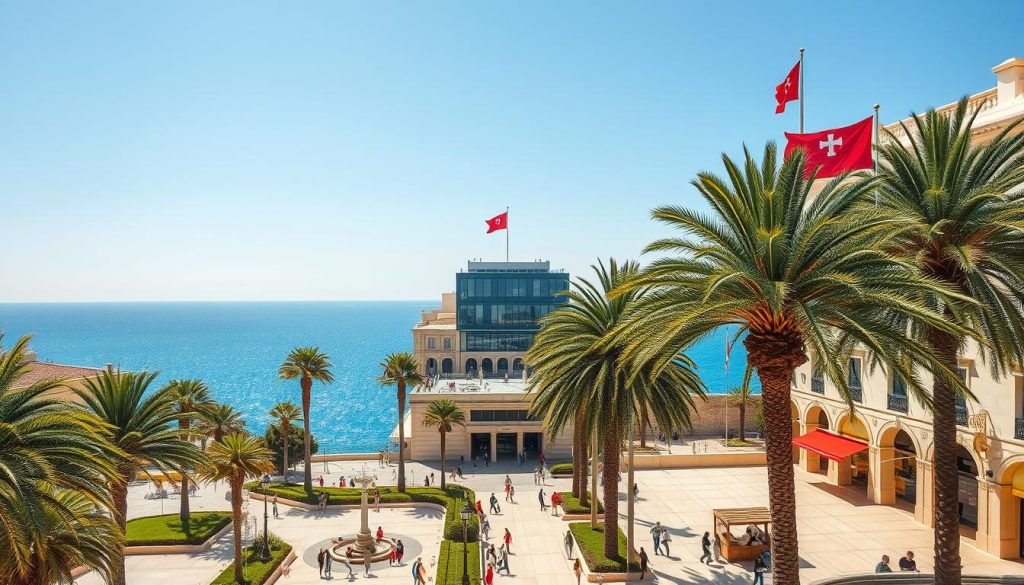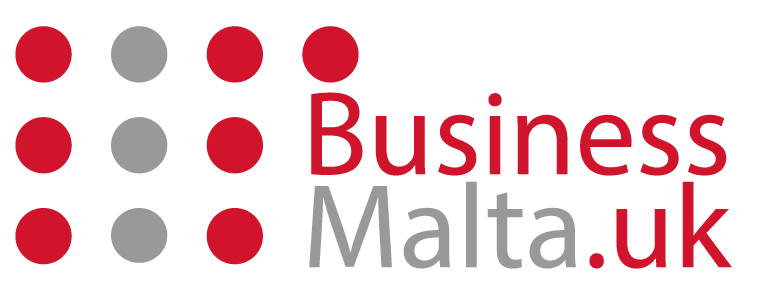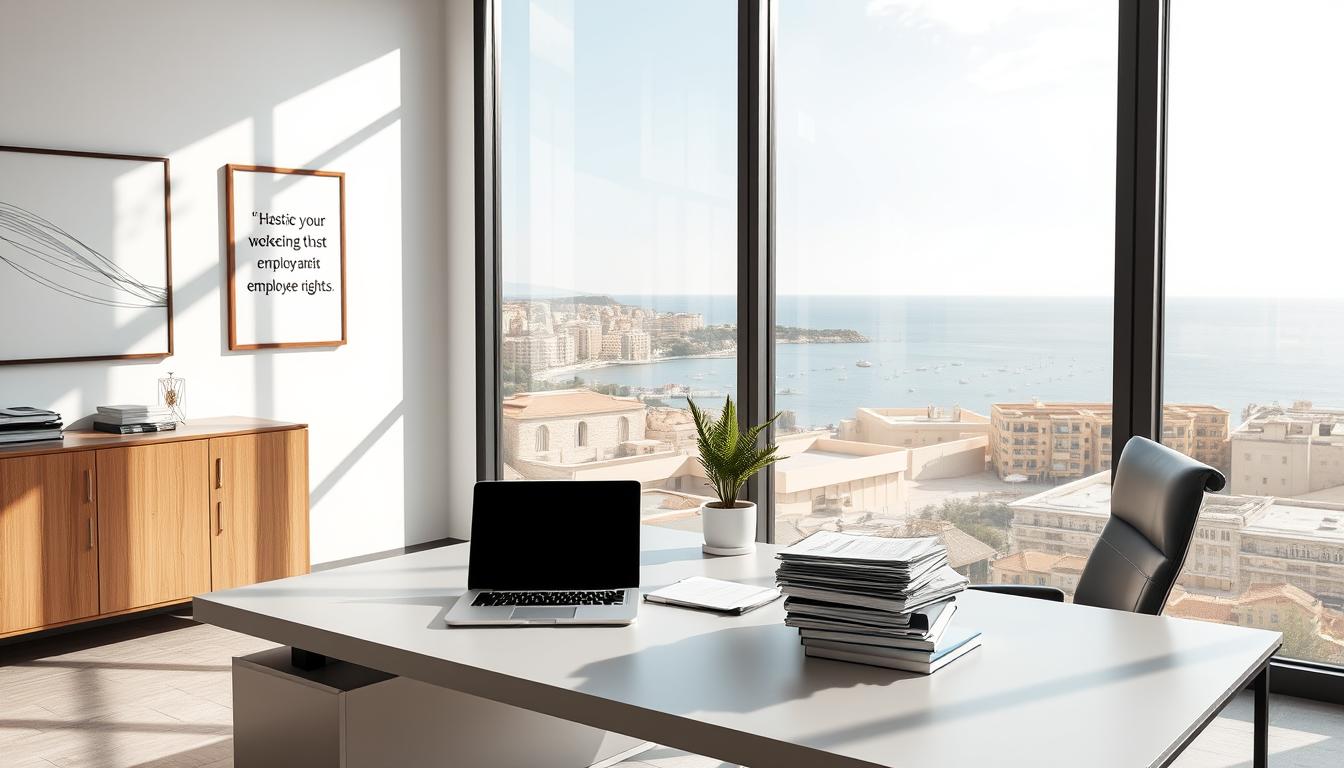Knowing your rights at work in Malta is key to a fair and rewarding job place. As we explore employment law in Malta, it’s clear that knowing our rights is vital. It helps protect our workplace rights and ensures we get the protection we need.
By learning about these rights, we help ourselves and our colleagues. This creates a supportive work environment where everyone can do well.
Introduction to Employee Rights in Malta
In Malta, knowing about employee rights is key for both workers and employers. The employment laws here protect workers from unfair treatment and discrimination. They also prevent unjust dismissals, making the workplace fairer and more respectful.
Overview of Employment Law
The laws about work in Malta cover important areas. They protect employees’ dignity and rights at work. This includes rules on pay, working hours, and safety to ensure a fair work environment.
Importance of Understanding Rights
We urge all employees to learn about their rights well. Knowing these rights can make work more satisfying and give people the courage to stand up for fairness. It helps us deal with work disputes and seek legal help if needed, making the workplace better for everyone.
Key Employee Rights in Malta
In Malta, knowing our rights at work is key to a fair workplace. We look at two main rights: fair treatment and the minimum wage. These rights boost dignity and create a better work place for everyone.
Right to Fair Treatment
Fair treatment is basic for respect and dignity at work. Maltese laws ban discrimination by gender, age, race, and disability. This keeps the work place healthy and fair for all.
Employers must follow these laws. Breaking them can cause big problems and penalties.
Right to Minimum Wage
The minimum wage in Malta protects our money. Every worker must get a wage that’s at least the national minimum. This ensures a fair income and fights poverty.
Employers must pay the minimum wage. This makes sure workers get what they deserve.
| Employee Rights | Description |
|---|---|
| Fair Treatment Rights | Protection against discrimination and assurance of respect and dignity in the workplace. |
| Minimum Wage Malta | Legal requirement ensuring employees receive no less than the established minimum wage. |
| Employee Entitlements | Rights that include fair compensation, respectful treatment, and benefits in accordance with Maltese law. |
Working Hours and Leave Entitlements
It’s key to know about working hours and leave in Malta for a good work-life balance. We’ll look at standard hours, annual leave, and sick leave rules under Maltese law.
Standard Working Hours
In Malta, the law says you work 40 hours a week. This is usually five days a week, with eight hours a day. But, some jobs or contracts might have different hours. You must get paid for extra hours worked, to follow local labour laws.
Annual Leave Provisions
Malta’s law gives you at least four months of annual leave, which is about 24 days for full-time workers. This includes public holidays. Taking annual leave is vital for your health and work performance. Employers should help you plan your leave and manage your work while you’re away.
Sick Leave Policies
Malta protects you when you’re sick. You can take sick leave without worrying about losing your job. The number of sick leave days you get depends on how long you’ve worked there. Tell your employer you’re sick and give them the right papers for your leave. This lets you recover without worrying about your job.

Employment Contracts in Malta
In Malta, employment contracts are key to the working relationship between employers and employees. They make sure everyone knows their roles and duties. These contracts also outline the rights and duties of both sides, leading to clear understanding and trust.
Importance of Written Contracts
Written contracts protect the rights of both employers and employees. They clearly state the employment terms, avoiding confusion or disputes. This document is vital for resolving any issues that may arise.
Essential Elements of a Contract
When making employment contracts in Malta, some key points must be included. These points ensure the contract is clear and follows the law. They include:
- Job description detailing roles and responsibilities
- Remuneration structure outlining salary or wages
- Working hours, including expectations and conditions
- Duration of the contract, if applicable
- Termination procedures specifying notice periods
- Any other benefits or provisions that may apply
| Element | Description |
|---|---|
| Job Description | Defines roles and responsibilities of the employee |
| Remuneration | Details salary, bonuses, and payment frequency |
| Working Hours | Specifies standard and overtime hours |
| Duration | Indicates fixed-term or indefinite nature of employment |
| Termination | Explains notice periods and conditions for ending employment |
| Other Provisions | Covers additional benefits, such as healthcare or bonuses |
Discrimination Laws in Malta
It’s key to know about discrimination laws in Malta for fair workplaces. These laws protect workers from unfair treatment due to age, gender, ethnicity, and disability. We aim to explore these laws and how they help create a just work place.
Types of Discrimination Protected
Malta’s laws cover many issues to stop unfair treatment. They protect against bias based on:
- Age
- Gender
- Ethnicity
- Disability
- Sexual orientation
- Religion
These areas are the foundation of fair workplaces. They ensure everyone can succeed without bias or prejudice. Knowing these protections helps us treat everyone with respect and dignity.
Reporting Discrimination
When discrimination happens, workers can report it. The steps to do this are:
- Write down what happened, including when and who was there.
- Tell a supervisor or HR about it.
- Look for help from outside groups if needed.
Many groups in Malta help those facing discrimination. It’s important for workers to know their rights and where to get help. Understanding these laws helps make workplaces fairer for everyone.
Health and Safety Regulations
It’s vital to know about health and safety rules to keep workplaces safe. In Malta, both bosses and workers have big roles in following these rules. This part explains what each side must do to make the workplace safer.
Employer Responsibilities
Bosses must look after their workers’ health and safety. They have to do several things, like:
- Find out about possible dangers.
- Put in place safety steps to reduce risks.
- Give workers the training and tools they need to work safely.
- Make sure the workplace meets all health and safety laws in Malta.
- Keep safety plans up to date.
Employee Responsibilities
Workers also have a part to play in staying safe. They should:
- Follow the safety rules set by their employer.
- Tell management about any safety issues quickly.
- Go to health and safety training when asked.
- Use the right equipment and PPE as told.

Termination of Employment
It’s important for employers and employees in Malta to know about termination rights. We must understand the legal reasons for firing someone and follow the right steps. This helps protect workers from unfair sackings and ensures fair treatment at work.
Grounds for Dismissal
In Malta, firing someone must be fair and well-documented. The main reasons include:
- Misconduct: Serious breaches of company rules or bad behaviour.
- Incompetence: Not doing the job well after being warned and helped.
- Redundancy: Jobs can be cut due to company changes or money issues.
- Legal infringement: Breaking laws that affect the company can lead to dismissal.
Notice Period Requirements
The notice period is vital for fair treatment when someone is let go. Employees get a certain amount of notice based on how long they’ve worked:
| Length of Service | Required Notice Period |
|---|---|
| Less than 6 months | 1 week |
| 6 months to 2 years | 2 weeks |
| 2 to 4 years | 4 weeks |
| 4 to 6 years | 6 weeks |
| More than 6 years | 8 weeks |
Knowing about termination rights in Malta and following the rules is key for a fair workplace. Clear rules help improve relations between workers and bosses.
Maternity and Paternity Rights
It’s key for employees in Malta to know about maternity and paternity rights. These rights help employees get the support they need during important family times. Maternity rights Malta and paternity leave Malta help families grow without worrying about money.
Maternity Leave Provisions
Maltese law gives mothers at least 14 weeks of maternity leave. This can be split before and after the baby is born. During this time, they get benefits to help with their income.
This period lets mothers recover and bond with their baby. It’s a big part of family leave entitlements.
Paternity Leave Provisions
Fathers in Malta can take up to 10 days of paternity leave. They can start this right after the baby is born. This leave lets fathers support their partner and get used to the new family life.
This shows how important fathers are in raising children. It helps share the parenting duties more fairly.
| Type | Duration | Eligibility Criteria |
|---|---|---|
| Maternity Leave | 14 weeks | Must be employed and contribute to social security |
| Paternity Leave | Up to 10 days | Must be employed and partner must deliver |
Learning about maternity rights Malta and paternity leave Malta helps us use our family leave better. It lets both parents support each other during big life moments. Knowing and using these rights makes families and workplaces stronger.
Social Security Benefits for Employees
It’s important for employees in Malta to understand the social security system. It explains how contributions and benefits work to protect us financially at different life stages. Knowing about these contributions is key because they impact our access to important benefits.
Overview of Contributions
In Malta, we all contribute to social security through our wages. These contributions help us get benefits when we need them. The amount we pay depends on our income, but it’s essential for the system.
This system helps us during job loss or illness. It also helps fund our pensions for when we retire.
Types of Benefits Available
Social security in Malta offers many benefits for employees. Some of the main ones are:
- Pensions: Financial help when we retire.
- Unemployment benefits: Support if we lose our job.
- Sick leave benefits: Help when we’re too sick to work.
- Maternity and paternity benefits: Aid for parents during and after childbirth.
By contributing to social security, we ensure access to these benefits. They can greatly reduce financial stress during tough times.
| Benefit Type | Description | Eligibility Criteria |
|---|---|---|
| Pension | Financial support after reaching retirement age. | Age 65 and required contributions made. |
| Unemployment Benefit | Support for job seekers after losing a job. | Involuntary unemployment and contributions made. |
| Sick Leave Benefit | Income support during a period of illness. | Medical certification required and contributions made. |
| Maternity/Paternity Benefit | Financial aid for parents during and after childbirth. | Must be an employee and contributions must be up to date. |
Working as a Foreigner in Malta
It’s important to know about working in Malta if you’re not from here. We’ll explain how to get work permits and the rights of immigrant workers in Malta.
Work Permits and Requirements
To work in Malta, you need a work permit. The steps to apply are:
- Find out what type of work permit you need.
- Submit your documents, like a passport and job offer.
- Wait for approval from the Employment and Training Corporation (ETC).
The time it takes to get a permit can vary. It’s key to follow Maltese immigration rules while waiting.
Rights of Foreign Workers
All workers in Malta have basic rights, no matter where they’re from. Foreign workers in Malta have the right to:
- Equal pay and working conditions.
- Access to social security, like health care and job support.
- Protection from discrimination and unfair job loss.
Knowing these rights helps foreign workers in Malta. It makes it easier for them to work here.
Nominee Services in Malta
In today’s world, knowing about nominee services is key for both workers and bosses. Nominee services in Malta help companies follow local laws. They also protect the interests of employees. These services make it easier to deal with the challenges of international business.
Understanding Nominee Services
Nominee services help foreign companies in Malta run smoothly. They use nominee directors or shareholders to follow the law. This keeps the real owners’ identities secret, helping with business protection rules.
Benefits for Employees
Nominee services boost job security and happiness at work. They protect employees’ rights and help secure benefits. This creates a stable place for workers to grow.
Also, these services show a company’s commitment to doing the right thing. This builds trust and reliability in the workplace.
Employee Financial Services in Malta
It’s key to know about employee financial services in Malta. They help us manage our money and keep our finances safe. There are many banking options and support programs to meet our financial needs while working here.
Banking and Payment Processing Options
There are many banking choices for employees in Malta. You can pick from traditional banks, online banking, or special financial services. Each offers different features like online account management and loan access.
Choosing the right bank is important for our financial health. It helps us manage our money better.
Financial Support for Employees
Financial support is vital for us to access resources when needed. There are programs to improve our financial knowledge, offer loans, and help with budgeting. These services empower us to make smart financial choices for the future.
| Type of Service | Description | Benefits |
|---|---|---|
| Traditional Banking | Physical banks with services like savings and current accounts. | Support, secure transactions, and access to many financial products. |
| Online Banking | Digital platforms for managing finances anywhere. | Easy, 24/7 access, and cost-effective transactions. |
| Microloans | Small loans for financial gaps. | Quick funds, less paperwork, and support for small projects. |
| Financial Advisory Services | Consultations for effective finance management. | Personalised planning and better financial decisions. |

SEO for WordPress Sites
In today’s digital world, having a strong online presence is key for job seekers. Search engine optimisation (SEO) is vital, more so for WordPress users. It helps boost visibility and attract employers.
Importance of SEO for Employee Portfolios
SEO can make our online portfolios more discoverable. By using the right keywords, our profiles show up in search results. This shows our skills and knowledge of online marketing, appealing to employers.
Optimising Job Listings
Optimising job listings is critical to grab job seekers’ attention. Using the right keywords in job descriptions boosts traffic. Clear titles, bullet points, and concise introductions make our posts easy to read.
WordPress Design and Maintenance
In today’s digital world, having a strong online presence is key. Effective WordPress design in Malta boosts visibility and engagement. A good website not only shows our brand but also welcomes visitors.
Enhancing Professional Online Presence
Our online image should match the quality of our services. With WordPress design in Malta, we can create a stunning site. It should be easy to use, responsive, and full of engaging content.
Regular Maintenance for Employee Websites
Keeping our site running smoothly is essential. Regular updates keep it performing well and secure. We should have a maintenance plan to avoid problems and keep users happy.
Relevant Financial Services
Financial services are key in our lives, giving us tools for our needs. In Malta, many services help us with financial planning. They aid in budgeting, saving, and investing, helping us reach our financial goals.
Knowing what’s out there helps us make better choices for our money. This knowledge is vital for our financial health.
Introduction to Financial Services for Employees
In Malta, financial services have grown to meet employee needs. We can find personal loans, savings accounts, and investment options. These services help us achieve our financial goals.
They make sure we’re financially stable and support our daily money decisions. This is all part of financial services Malta.
How Financial Services Can Support Employment
Using employee support services can greatly benefit our careers. They provide financial education and help with retirement planning, debt management, and emergency funds. Key features include:
- Personalised budgeting tools to help track and manage expenses.
- Workshops on savings strategies and investment basics.
- Access to tailored financial advice from experienced professionals.
By using these services, we improve our financial knowledge and stability. This leads to better job satisfaction and security.
| Financial Service | Description | Benefits |
|---|---|---|
| Loans | Personal loans for employees to manage sudden expenses. | Flexibility in repayments, lower interest rates. |
| Investment Guidance | Expert advice on how to invest our savings. | Potential for higher returns and financial growth. |
| Retirement Planning | Options for long-term savings and pension plans. | Security and stability in later years. |

Conclusion: Empowering Employees in Malta
In Malta, knowing our rights is key to empowerment. We need to understand our rights to fair treatment, leave, and health and safety. This knowledge helps us stand up for ourselves at work.
There are many resources for employees in Malta. These help us understand our rights better. They make sure we can make smart choices for our careers.
When we face problems at work, knowing where to get help is important. The Department of Industrial Relations and trade unions offer great support. Using these resources helps us grow as individuals and strengthens the workforce in Malta.
Empowering employees in Malta means being proactive about our rights. We should use all the resources available to us. This way, we can work together to make our workplaces fair for everyone.







